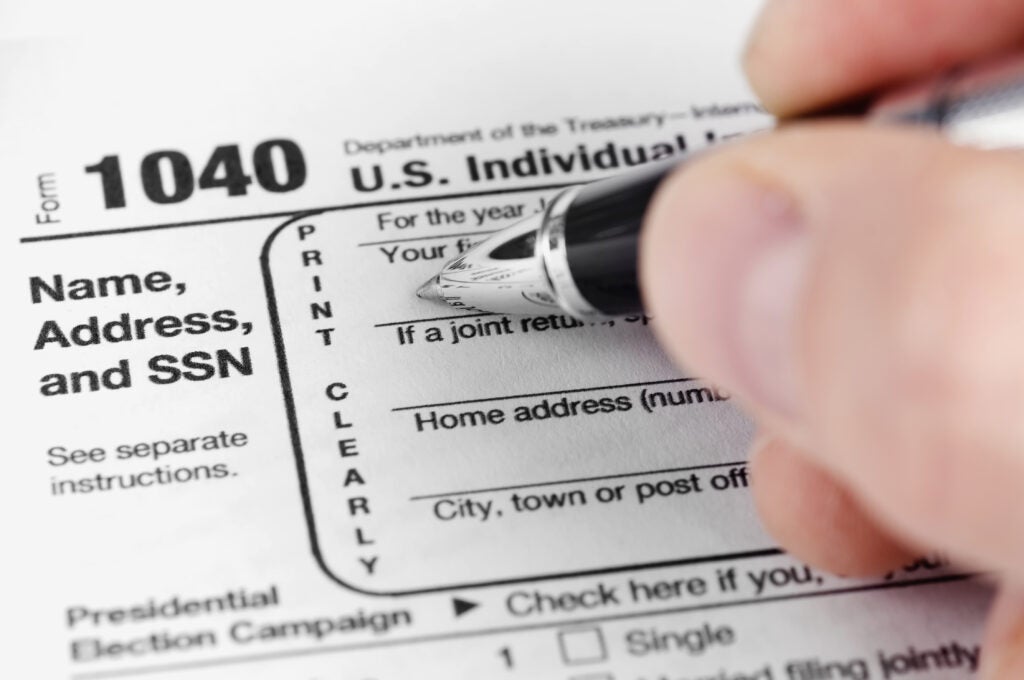Tips for first-time income tax filers
Published 12:18 pm Tuesday, February 13, 2024

- Tax Form 1040 with accountant signing. Please see my portfolio for other tax related images.
|
Getting your Trinity Audio player ready...
|
Are you a first-time tax filer? Whether the plan is to file through a tax preparation service or on your own, filing taxes for the first time can be daunting. However, there is no need to worry. Portia Johnson, an Alabama Cooperative Extension System specialist, has great tips for first-time and seasoned filers.
Filing is Almost Always Necessary
Johnson, a financial resource management specialist, said some taxpayers think that they don’t have to file taxes if they don’t make a lot of money.
“Although some people are exempt from taxes, most people are not,” she said. “If you are under 65 and make more than $13,850 for single filers or $27,700 for married filers, you must file a tax return for 2023.”
Johnson said tax credits can lower the amount of tax owed or increase the amount of a tax refund. So, filers may get a refund even if they don’t owe any money for taxes. Individuals who qualify for those tax credits must file in order to receive a refund.
Prepare to File Federal Taxes
When preparing to file federal taxes with the Internal Revenue Service (IRS), Johnson said there are a few things to do prior to filing:
- Gather tax documents. It is wise to collect tax-related items and information throughout the year to prepare for tax season.
- Store documents safely and securely. It is important to keep tax documents in case you are audited by the IRS.
- Compare tax preparation options. Before filing taxes, it is good to have an idea of all of the options and costs to successfully file.
“Doing these things helps to save time when completing the forms and helps safeguard against omitting information or making filing errors,” she said.
In addition to gathering documents and comparing filing options, first-time filers should also double check that no one else is filing them as a dependent on their return. This is especially important for young adults. Also, first-time filers should seek out tax deductions or credits for which they may be eligible.
File on Time
For most Americans, the deadline to file 2023 federal income taxes with the IRS is Monday, April 15. The earliest taxpayers could begin filing was Jan. 23 — the official start of 2023 tax filing season.
“Generally, the best time to file taxes is as soon as you have gathered all of the tax documents,” Johnson said. “Filing early can also save taxpayers money since many commercial tax preparers run promotional pricing in late December and early January to attract new or repeat clients.”
Taxpayers who file after April 15 may receive a late fee of up to 5% per month and up to 25% of a tax amount owed. Johnson said it is best to file a tax extension if delays are expected. Extension requests must be filed by April 15. This gives taxpayers until Oct. 16 to file tax returns.
“It is important to note that an extension does not automatically prevent late penalties for taxes unpaid as of April 15,” she said.
Choose How to File
Many people decide to file their own taxes, while others choose to use a tax preparation service or preparer. Johnson said tax filers might consider hiring a professional if they fall into one or multiple of the following areas:
- Own a business.
- Plan to itemize deductions.
- Have other complex tax situations — including extensive investments, multiple properties or other assets — or perform gig or contract work.
Taxpayers that want to file their own taxes will want to have a comfort with financial forms and figures. Also, they need to allow at least five to seven hours of time to prepare and file simple taxes or up to 20 hours to file more complex tax situation.
More Information
Learn more about each of these tips by reading Johnson’s full Extension Brief, Five Tips for Filing Taxes. An additional resource for taxpayers is the 2023 WISE Money Management calendar. This calendar includes a list of documents to keep on hand for tax filing as well as a recordkeeping log. Both of these publications are available at www.aces.edu. Taxpayers can also contact their county Extension office to connect with a human sciences agent.





